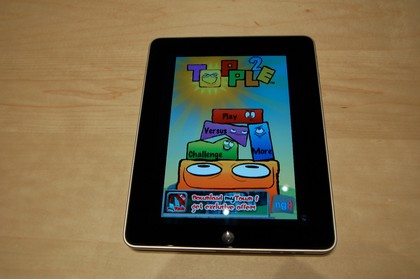Gaming in 2020: what the next decade holds
Industry plans motion and mind control, 3D MMOs and more
The recent moves towards 'cloud gaming' with the recent emergence of server-side gaming from the likes of OnLive and Gaikai has led many in the console business to predict the end of the console, as we know it.
Are we perhaps getting a little too ahead of ourselves? Surely the current console giants - Sony, Nintendo and Microsoft - will all be around for some time yet. But it does increasingly look likely to be the case that we will never see a 'brand new' PlayStation 3, Xbox 720 or Wii 2 - and instead start to see incremental improvements to the current (familiarly branded) forms of tech on an annual basis.
"This is where the power of the brand - "XBOX", "PLAYSTATION" and so on - becomes important as consumer purchase is based on brand affinity, game offering and the integration of additional services, such as Sky Player, iPlayer, Facebook, Twitter etc.," says Ubisoft MD Rob Cooper.
Additionally, might we perhaps see a new entrant into the market soon? "We could see a new "all-powerful" device," says Cooper – think a supercharged PSP or iPad - "allowing you to play effectively the same game on the move or plug into your 52" 3D TV. Permanently connected - and permanently backed up in case a hoodie mugs you for it?"

NEXT BIG THING: Might Apple's new iPad be the next disruptive tech in gaming?
And, if this should become the case, might we also see a new player emerge in the market soon? An Apple or Sky or someone else to take on the might of the Sony-Microsoft-Nintendo triumvirate?
Analyst Nick Gibson, from Games Investor Consulting, is not so sure, telling TechRadar: "Many will be predicting the death of the games console by 2020 so I will play the contrarian and predict that consoles will still be sold and an important part of the games market in the year 2020.
Sign up for breaking news, reviews, opinion, top tech deals, and more.
"The console manufacturers show no material signs of moving beyond the concept of proprietary hardware formats even if future platforms are simply scaled up versions of existing technologies and software is delivered digitally rather than via physical media. Stable technology platforms and predictable, long-term user base growth are and will remain crucial for developers and publishers' business models.
"Following Sony's successful lead with PS1 and PS2 sales, all of the manufacturers are looking to extend their console lifecycles beyond the standard five-year shelf lives and we expect all three to release new consoles in the next two to four years. As such, it is likely that some of these consoles will still be around in 2020. If they haven't been superseded by a subsequent console generation that is..."
Keeping the consoles
Steve Bailey, games analyst over at Screen Digest is largely in agreement with this vision of the future of consoles, adding that the current crop of console tech may be the first generation of gaming hardware whose lifespan could, arguably, be extended almost into the next decade, "thanks to the fluidity of firmware, the sophistication of middleware and increasing uptake of online services... and perhaps necessarily so.
"Survival of home consoles may no longer be a case of producing a sufficiently featured next-generation of hardware, more in being able to evolve current machines in order to blend them ever more closely with the emerging trends of online gaming.
"If nothing else, this could bring about a 'golden age' for gaming, where the ballooning budgets and asset-generation marathons begin to stabilise, allowing ideas to flourish, hopefully dragging walls down rather than building them higher."
Finally, and following on from that hugely positive note, many others in the games business agree that, in the current churn of technology we are in the midst of right now that there are huge opportunities for other people coming into the gaming business and upsetting the current dominant players.
Apple as a major games player?
"This situation certainly opens up opportunities for other companies to come along and join in," argues AMD's Richard Huddy. "And Apple has shown, with very clever use of technology, how it is possible to upset gaming environments. They haven't pushed Nintendo out of the way because the DS and DSi are still far more significant than the iPhone in the mobile gaming market, but they have certainly got a good foothold in there.
"Apple used to half-heartedly support gaming on its PCs, but to go into this style of gaming has been quite fun for them. And, I guess, pretty profitable as well. So yes, there are more than enough opportunities."
Game developer Bruce McNeish, CTO of Cohort Studios in Dundee also wonders if Apple might look at combining its App Store and Apple TV setup to develop a home console.
"If there is any company that has the finances to back an entry into the home gaming market it is certainly Apple. The iPhone has been a phenomenal success, has allowed Apple the time to develop its App Store, and has also given a large number of developers experience of developing for their platform using the now mature SDK.
"This platform could easily be used as the basis of a home-based console, so I would be more surprised if they did NOT develop some kind of overt home gaming hardware in the next decade."
-------------------------------------------------------------------------------------------------------
Liked this? Then check out Is free the future of gaming?
Sign up for TechRadar's free Weird Week in Tech newsletter
Get the oddest tech stories of the week, plus the most popular news and reviews delivered straight to your inbox. Sign up at http://www.techradar.com/register
Current page: Cloud gaming and an Apple console?
Prev Page 2020: the 'holodeck' tipping point